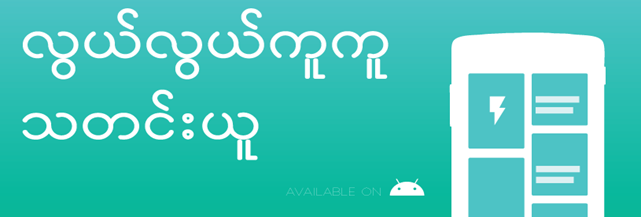Bindez is a recently formed start-up in Myanmar that has developed an information search engine and discovery platform that connects users to relevant and understandable information relating to local news (politics, business, sport and entertainment) and real-time information in range of areas. Their objective is to connect Myanmar people worldwide with information and content in their own language.

Product Summary
Year Launched: 2014
Business Model: Advertising, Insights, Tech transfer
Primary Delivery Technology: Apps, Web
Products & Services: Search engine and Content Portal
Markets Deployed In: Myanmar
Estimated Total Number of Users: 20,000
Background and Opportunity
After decades spent in relative isolation, Myanmar is opening up to the world. The military dictatorship that ran the Southeast Asian nation from 1962 to 2011 tightly controlled many industries. Until 2013, the state owned Myanmar Posts and Telecommunications (MPT) was the sole landlines, mobile and internet service provider. The consequence of this was that while mobile phones were not illegal, the cost of running a mobile was far too high for the vast majority of the population. Five years ago, the country only had 1 million mobile subscribers and only Eritrea and North Korea had lower levels of mobile penetration. However, a series of reforms beginning in 2011 led to a loosening of many of the traditional monopolies that existed in the country. This included the telecoms sector, and in 2013 Telenor and Ooredoo were awarded licenses in the first telecommunications auction held in the country. As a consequence, growth has been dramatic and Myanmar now represents one of the world’s most dynamic mobile markets. In a single year, unique subscriber penetration (the percentage of the population subscribed to a mobile service) in the country jumped from 11.7% to 29.1%. Moreover, over half of these subscribers had access to the mobile internet, typically on faster 3G or 4G networks. As a consequence, thanks to mobile Myanmar has joined the internet age at an unprecedented speed.The decision of the foreign operators to push 3G networks, ‘leapfrogging’ the older 2G signal meant that user experienced a far higher quality of service than in many comparable markets. Concurrently, the liberalization of the telecoms market came at point in time when smartphones were becoming a mass market product in the developing world due to their increased affordability. In other emerging markets, a number of services have necessarily been developed for basic phones, using SMS, USSD and IVR platforms. As a result, Myanmar had the potential to go straight to smartphone apps, skipping less advanced mobile platforms. However, this is contingent on consumers seeing the enhanced value of smartphones and mobile broadband network. For this reason, operators in Myanmar are interested in finding content that is relevant for the subscribers now coming online. In recognition of this, the GSMA have previously supported Ooredoo, in order to develop a pre-natal and post natural care App, May May, specifically tailored to the women of Myanmar. The objective here, aside from disseminating vital information, is that by demonstrating the relevance of Internet to women, they will ultimately become better customers for the operator.Globally, for decades, a great deal of energy has been focussed on the lack of connectivity in many emerging markets, particularly with regard to the Internet. In the past ten years, as more people have begun to come online, the focus has begun to shift towards whether the content is there to make the Internet relevant to those who are being connected for the first time. As a result, there is now more attention being placed on the content and gateways to content that people in particular markets understand and find relevant. For this to happen, many technical challenges have to be overcome, information discovery chief among them. This problem was the one Bindez aimed to solve.
This document was originally produced as part of the former Mobile for Development Impact programme.

